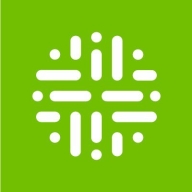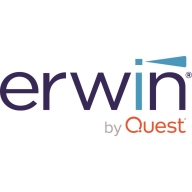

Collibra Governance and erwin Data Intelligence by Quest compete in the data governance category. Collibra has the upper hand in user-friendliness and integration, while erwin excels in mapping and data cataloging.
Features: Collibra Governance is known for its collaboration platform, workflows, and data lineage capabilities, enhancing integration of business and technical metadata. Erwin Data Intelligence focuses on detailed data lineage, mapping features, and Smart Data Connectors, providing a single source of truth for enterprise data management.
Room for Improvement: Collibra struggles with metadata ingestion connectors and complex data lineage processes, with limited support for ETL tools. Users also note a reliance on APIs for custom integrations. Erwin requires improvement in automation and user interface intuitiveness, especially with codeset mapping workflows, and enhancement of AIMatch feature and data cataloging capabilities.
Ease of Deployment and Customer Service: Collibra offers versatile deployment options across Public Cloud, Private Cloud, On-premises, and Hybrid Cloud, with engaged technical support. Erwin focuses on On-premises and Public Cloud deployments, with technical support expertise but occasional delays due to a smaller team. Both provide detailed online resources for user training.
Pricing and ROI: Collibra is considered expensive but supports scalability by lowering costs for wide organizational use, offering potential long-term benefits in data governance. Erwin is more affordable, providing a cost-effective data management solution with a pricing structure suitable for various organizational sizes, though the high cost of some features like Smart Data Connectors is noted. Both promise ROI through improved efficiency and streamlined data governance.
Technical support is effective in providing solutions.
The technical support is quite good.
There is no information available currently for this section.
Collibra's data quality feature only provides observations on data quality without any remediation techniques.
There should be a reduction in cost as compared to other tools.
The platform can sometimes be unstable, particularly in terms of speed and reconnection issues.
Collibra has high initial costs for licensing that can be a barrier to small and medium-sized companies starting with it.
The price is average, and it provides good value for the money.
The most important feature is the ease of use.
I find the rule modification and the replication of the rules in Collibra happens very quickly.
The data lineage feature is beneficial for understanding where data is coming from.


Collibra Governance is a software solution for data governance, which refers to the set of policies, standards, and processes that govern how an organization manages, uses, and protects its data. Collibra Governance provides a centralized platform for managing data governance, enabling organizations to ensure data accuracy, completeness, and security.
The software includes tools for managing data lineage, data dictionaries, and metadata, as well as for monitoring data quality and compliance with data governance policies. It also provides a collaboration platform for stakeholders to work together on data governance initiatives, ensuring that data governance is integrated into the organization's data management processes.
Collibra Governance is designed for organizations of all sizes, from small businesses to large enterprises, and can be used across a variety of industries and use cases. It is a cloud-based solution that can be easily implemented and integrated into an organization's existing data management infrastructure.
Collibra Governance Features
Collibra Governance has many valuable key features. Some of the most useful ones include:
Collibra Governance Benefits
There are many benefits to implementing Collibra Governance. Some of the biggest advantages the solution offers include:
Reviews from Real Users
Collibra Governance is a solution that stands out when compared to many of its competitors. Some of its major advantages are that it has good data lineage, is easy to use, and has good customization capabilities in addition to many other great features.
A Sr. Systems Analyst, Master Data Governance at a manufacturing company expresses, “[The solution has] good data lineage and is surrounded by a helpful community.”
“[It’s] easy to use with good customization capabilities and great features,” says a Senior Consulting Analyst at a construction company.
According to Kriti T., Senior Manager, Service Design Manager at a pharma/biotech company, “The solution lets me associate the right people with the right assets, so anybody who has to look at end-to-end instances can use Collibra Governance and figure it out in terms of who to contact, what to do, and where to find what you need.”
The erwin Data Intelligence Suite (erwin DI) combines data catalog and data literacy capabilities for greater awareness of and access to available data assets, guidance on their use, and guardrails to ensure data policies and best practices are followed. Automatically harvest, transform and feed metadata from a wide array of data sources, operational processes, business applications and data models into a central data catalog. Then make it accessible and understandable within context via role-based views. This complete metadata-driven approach to data governance facilitates greater IT and business collaboration.
We monitor all Data Governance reviews to prevent fraudulent reviews and keep review quality high. We do not post reviews by company employees or direct competitors. We validate each review for authenticity via cross-reference with LinkedIn, and personal follow-up with the reviewer when necessary.